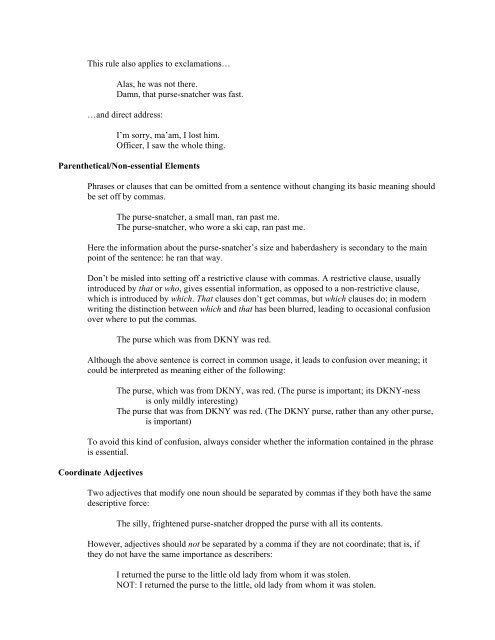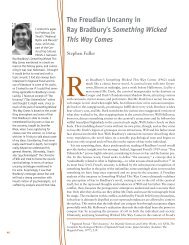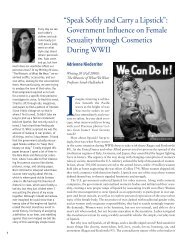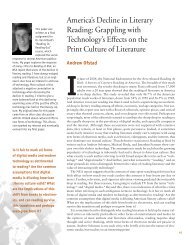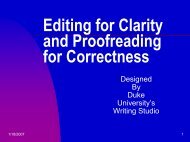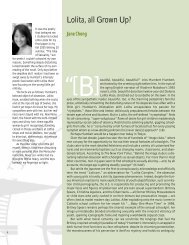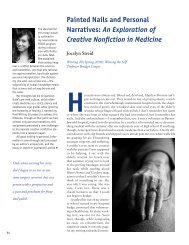Create successful ePaper yourself
Turn your PDF publications into a flip-book with our unique Google optimized e-Paper software.
This rule also applies to exclamations…<br />
Alas, he was not there.<br />
Damn, that purse-snatcher was fast.<br />
…and direct address:<br />
I’m sorry, ma’am, I lost him.<br />
Officer, I saw the whole thing.<br />
Parenthetical/Non-essential Elements<br />
Phrases or clauses that can be omitted from a sentence without changing its basic meaning should<br />
be set off by commas.<br />
The purse-snatcher, a small man, ran past me.<br />
The purse-snatcher, who wore a ski cap, ran past me.<br />
Here the in<strong>for</strong>mation about the purse-snatcher’s size and haberdashery is secondary to the main<br />
point of the sentence: he ran that way.<br />
Don’t be misled into setting off a restrictive clause with commas. A restrictive clause, usually<br />
introduced by that or who, gives essential in<strong>for</strong>mation, as opposed to a non-restrictive clause,<br />
which is introduced by which. That clauses don’t get commas, but which clauses do; in modern<br />
writing the distinction between which and that has been blurred, leading to occasional confusion<br />
over where to put the commas.<br />
The purse which was from DKNY was red.<br />
Although the above sentence is correct in common usage, it leads to confusion over meaning; it<br />
could be interpreted as meaning either of the following:<br />
The purse, which was from DKNY, was red. (The purse is important; its DKNY-ness<br />
is only mildly interesting)<br />
The purse that was from DKNY was red. (The DKNY purse, rather than any other purse,<br />
is important)<br />
To avoid this kind of confusion, always consider whether the in<strong>for</strong>mation contained in the phrase<br />
is essential.<br />
Coordinate Adjectives<br />
Two adjectives that modify one noun should be separated by commas if they both have the same<br />
descriptive <strong>for</strong>ce:<br />
The silly, frightened purse-snatcher dropped the purse with all its contents.<br />
However, adjectives should not be separated by a comma if they are not coordinate; that is, if<br />
they do not have the same importance as describers:<br />
I returned the purse to the little old lady from whom it was stolen.<br />
NOT: I returned the purse to the little, old lady from whom it was stolen.


